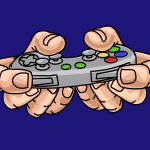Since esports is a young industry populated mostly by younger people, deaths for that world are somewhat rare. This is why I and the rest of the community were shocked when the death of professional Overwatch player Kyeong-Bo Kim, known by his in-game alias “Alarm,” was announced Nov. 7.
The death of anyone from the video game subcultures I follow would sting, but Alarm’s passing hit especially close to home because he was my favorite player. He was affiliated with my home team in the Overwatch League, the Philadelphia Fusion, for almost all of his professional career. Making his debut in tournament play in 2016, Alarm was signed to the Philadelphia Fusion’s minor-league team in 2018 and was promoted to the major-league Fusion roster in 2020.
He had been hyped up extensively by the start of the 2020 season and never disappointed for a second. I became one of the many enthralled by his skill. Alarm won Rookie of the Year that season, and I personally believe he played just as well in the 2021 season too — though Fusion was held back by COVID-19-related player visa issues.
The fact that Alarm came off of a respectable season and passed away suddenly only a month later serves to remind just how fragile human life is. Moreover, it speaks to how saying goodbye on your own terms is a luxury not afforded to everyone.

When baseball legend Lou Gehrig was suddenly diagnosed midseason with ALS, he was able to give a farewell speech in front of a packed Yankee Stadium and was inducted into the Baseball Hall of Fame in a special expedited vote to ensure he was alive to see himself in Cooperstown. Alarm was not able to give such a goodbye to his fans.
Because the Internet gives so many unsavory people a voice, Alarm’s death was regrettably met with disrespect to his memory, such as one article attempting to quantify his net worth mere days after the announcement. Others also raised concerns about the appropriateness of remembering Alarm as a player or asset to the Overwatch League rather than through his personality and interpersonal relationships.
In my opinion, a respectful middle ground can and should be reached. When researching for this article, a listicle on athletes who “died during their prime” from Complex came off as the cruel extreme in which a dead athlete is valued only for their performance.
The listicle barely mentions players’ emotional qualities at all — their accolades, potential future performance and cause of death are listed, and that is it. The emphasis on the cause of death feels somewhat sensational here. These are trophy-winning machines that broke down, not people.
Of course, the sport that an athlete played made up a critical part of their life. If they were a professional, the game was by definition their life’s work. No account of their life would be complete without mentioning the game they were tirelessly devoted to, but sufficient tact is critical.
Furthermore, an intimate understanding of an athlete’s skill in their sport can illuminate some of their best and most memorable qualities. In the case of Alarm, every second of his career in the minor leagues was spent being one of the best players in his in-game role, and he was only kept from joining the majors by the Overwatch League’s age restriction, which required players to be 18 years old or older. But when Alarm finally aged up to the Overwatch League after over a year of wreaking havoc against minor leaguers, he had no ego and was eager to learn, his then-coach recalled.
That is to say that Alarm was a model of humility, poise and professionalism. Incredibly skilled without being hot-headed and a wonderful teammate, Alarm was a competitor par excellence. Not long after his passing, Alarm’s mother stated that she wanted her son to be remembered as a good player. This will be done and will be inseparable from the qualities that made him a joyful presence in the lives of loved ones, friends, teammates and fans.














